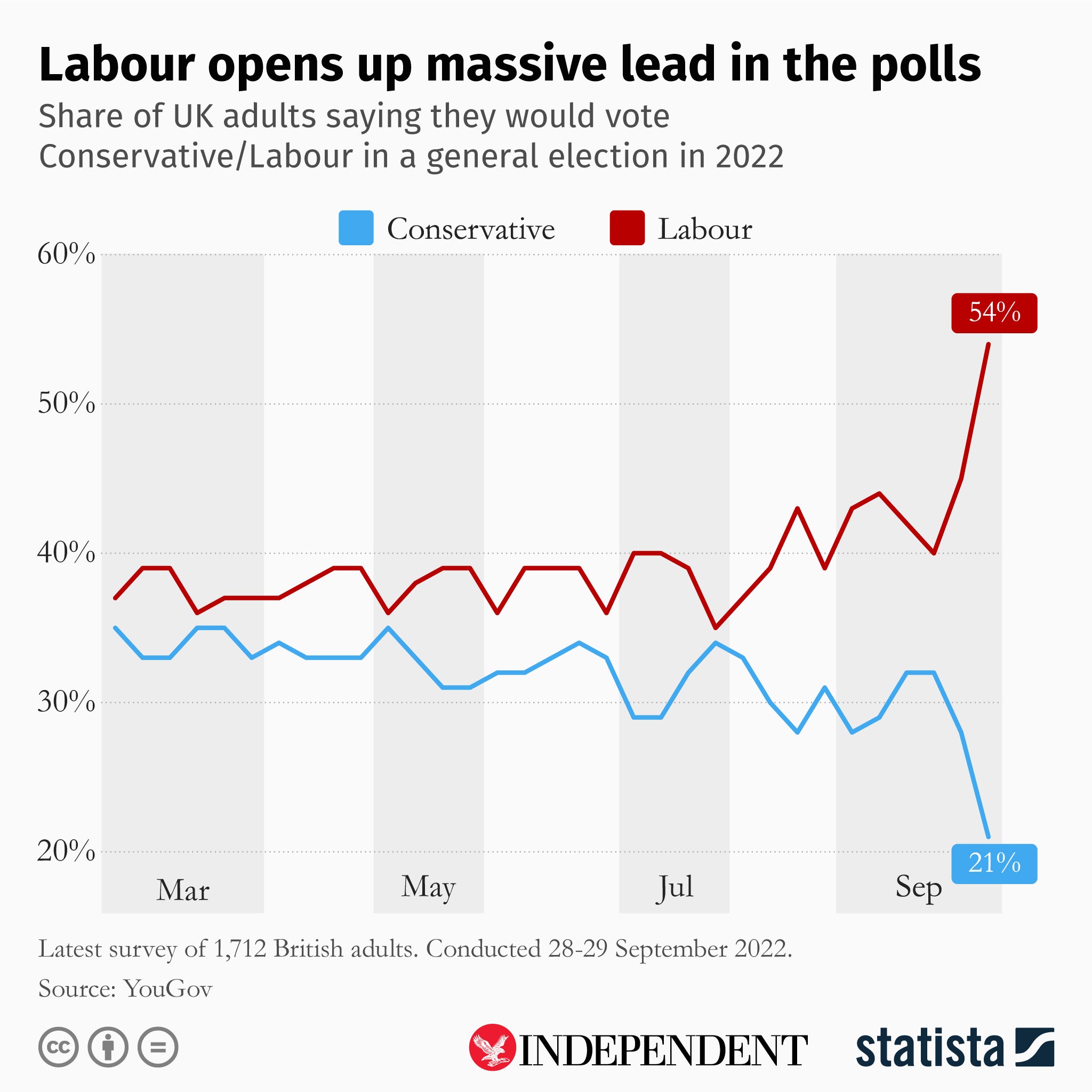Your support helps us to tell the story
From reproductive rights to climate change to Big Tech, The Independent is on the ground when the story is developing. Whether it's investigating the financials of Elon Musk's pro-Trump PAC or producing our latest documentary, 'The A Word', which shines a light on the American women fighting for reproductive rights, we know how important it is to parse out the facts from the messaging.
At such a critical moment in US history, we need reporters on the ground. Your donation allows us to keep sending journalists to speak to both sides of the story.
The Independent is trusted by Americans across the entire political spectrum. And unlike many other quality news outlets, we choose not to lock Americans out of our reporting and analysis with paywalls. We believe quality journalism should be available to everyone, paid for by those who can afford it.
Your support makes all the difference.Over the summer the Conservatives ejected Boris Johnson from power amid concerns that their party was falling behind in the polls.
As the nights draw in for October, the Tories have found themselves out of the frying pan and into the fire. There is no sign of a honeymoon for Mr Johnson's replacement Liz Truss – far from it.
A hardline free market budget that prioritised tax cuts for the wealthy over balancing the budget has sent markets reeling and put the party 33 points behind Labour in the polls.
There are already murmurings that Ms Truss, who took office only at the start of this month, may not be long for this world.
But what would Conservatives have to do to get rid of her, and is it even possible?
Here we go again
The most conventional way for the Conservative party to ditch its leader is for MPs to write letters of no confidence to the party's ruling 1922 committee.
Under Tory rules, if 15 per cent of the parliamentary party – currently 54 MPs – send a letter, then a no confidence vote of all MPs is triggered.
This happened to Boris Johnson, but he initially survived the vote, which requires a majority of MPs to oust someone as leader.
There are reports that multiple MPs have already sent letters about Liz Truss in to the committee's chair Sir Graham Brady.
The fun thing about this mechanism is that the only person who knows how many letters have gone in is Sir Graham, because the figure is private until the threshold has reached. As such, there is much room for speculation and zero hard evidence.
Safe for now?
But there is another relevant rule. Under existing procedures, no Tory leader who has survived a leadership challenge can be challenged for another year.
It has been claimed by some Tories that this rule applies to new leaders who have only just been elected – a fact reported confirmed by Sir Graham.
So is Truss safe? Not necessarily, even if this is the case. You may remember that shortly after Boris Johnson survived his no-confidence vote, things went from bad to worse for him and many MPs changed their mind and decided they wanted to get rid.

MPs effectively threatened to change the rules on Johnson to allow another challenge: and the same threat applies to his successor.
To amend the rules would require MPs on the 1922 committee's executive to agree that the situation merited such a course of action. It is not clear what the executive, which was only recently elected, thinks of the idea now. But were there enough anger among MPs at the prime minister’s performance, it would be possible.
Are there any other ways?
Barring a rule change, Truss could be ejected the way Johnson was ejected. Johnson was hit by cabinet resignation after cabinet resignation and left isolated.
Eventually, allies convinced him that it was time to leave for the good of the party and that he could not do anything productive in office.
Liz Truss has yet to be hit by any Cabinet resignations, so the situation is somewhat different. But if she says 33 points behind in the polls, you can expect the informal pressure on her to continue to mount. Perhaps there will come a situation where she will choose to depart of her own free will.
What about the public?
The public have fewer options. We must wait for a general election, and the timing of this election is controlled by Truss herself and unlikely to be any time soon. The longest she can wait is until early 2025, though she has previously said she expects to face the public in 202, the year after next.

Join our commenting forum
Join thought-provoking conversations, follow other Independent readers and see their replies
Comments